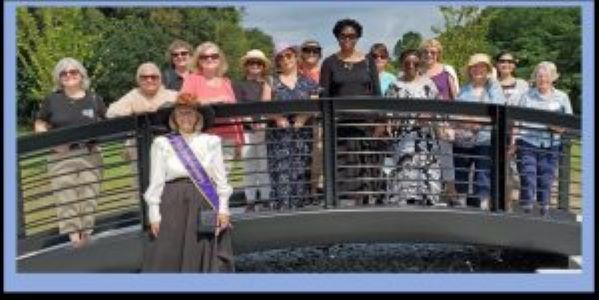
Click here to read AAUW’s new research report, which explores the earnings difference between female and male college graduates who are working full time one year after graduation.
Pay equity is the achievement of the appropriate recognition, status and value for the work performed by women and people of color. Work value is reflected in the wage rate. But pay equity is more than money.
Achieving pay equity for all women is a long-term goal and there are a variety of ways to get there. As a resident of your local community you are the expert on what strategies may work in your area right now. Anyone can contribute to this goal by taking part in activities that would best fit their current community, resources and situation.
Below is a list of programming and advocacy ideas to help you get started. You can find more ideas and step-by-step programming information in the AAUW Pay Equity Resource Kit (PDF).
Ideas for Action
- Recognize Equal Pay Day (April 17, 2012)
Encourage your governor, city council, or mayor to proclaim “Equal Pay Day” in your state or community.
- Organize WAGE club meetings
Invite women to a series of discussions and strategy sessions to help each other take action to help close the wage gap in their workplaces.
- Understand what recourse you have
The AAUW Legal Advocacy Fund provides a Pay Equity web page as part of the LAF Resource Library.
- Conduct a workplace pay audit
Business and Professional Women/USA has a simple guide for businesses to perform a pay equity self-audit.
- Ask legislators to sign a Fair Pay Pledge
The pledge may indicate that legislators will support pay equity legislation or they will ensure pay equity practices are followed in their own offices.
- Organize a reading and discussion series
AAUW’s ¡Adelante! Book of the Month Club included Nickel and Dimed: On (not) Getting by in America by Barbara Ehrenreich. Use this and similar books to talk about the issue of women concentrated in low-wage jobs.
- Host a $tart $mart workshop on negotiation skills for women
Economists agree that individual differences in negotiating skills can lead to pay variation among workers with similar skill sets.
- Share your plans for Equal Pay Day. Tell AAUW what your branch or group is doing to mark the day so we can track the fight for equal pay all across America and help spread the word of your events before they happen.
